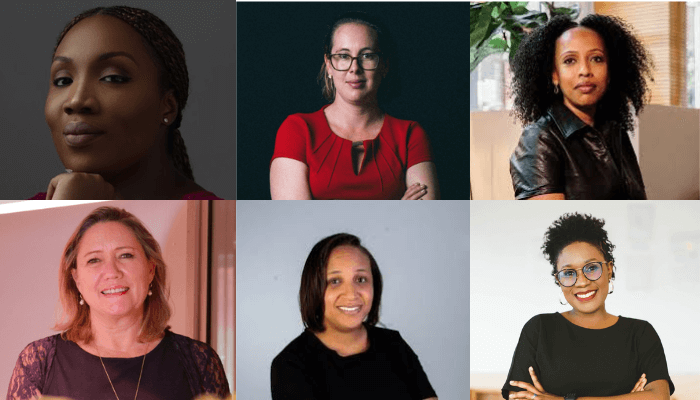Securing funding as a female founder in Africa has remained a challenge. Despite the continent’s thriving startup ecosystem, women-led businesses continue to receive only a fraction of the investments flowing into the sector.
According to Africa: The Big Deal, female founders in Africa secured only 2 percent of the total funding in 2024. The funding tracker further revealed that women-led startups raised only $48 million, a fourfold drop from 2023, marking the lowest funding levels for female entrepreneurs since 2019. Meanwhile, their male counterparts raised nearly $2.2 billion within the same period.
Yet, in the face of these stark disparities, some African female founders have defied the odds, raising over $25 million for their ventures.
Here are six women who are reshaping Africa’s startup landscape.
Uche Ogboi

Uche Ogboi was the chief executive officer of Lori Systems from 2021 till 2023. She joined Lori as Chief Operations Officer (COO) in July 2019 just before the logistics firm raised $30 million through a series A round, led by Chinese investors Hillhouse Capital Group and Crystal Stream Capital with participation from Apoletto Asia, the firm run by Russian billionaire founder Yuri Milner, Timon Capital, Raba VC, Endeavors Catalyst among others.
Amity Weiss

Amiss Weiss was a co-founder at Komari beverage, a food tech startup making flavoured beverages. Weiss led the food tech’s incorporation in 2017 with 26 million dollars, with most of its equity raised from investors in Germany, becoming the 12th alcoholic beverage producer in Ethiopia. After her time at Komari beverages, Weiss has gone on to build Melela Partners, where she functions as Managing Partner.
Read also: Nigerian startups corner 80% of West African funding
Sara Menker

Sara Menker founded Gro Intelligence, one of the female-led startups in the $100m club. However, it shut down in February 2024 when Sara Menker, its co-founder and CEO, was replaced amid rumours of the organisation’s impending closure. Gro Intelligence had previously made headlines in January 2021 when it raised $85 million in a Series B round, the largest by any female-led startup in Africa to date.
Belinda Shaw

Belinda Shaw is the founder of Cape Bio Pharms, a South African biotech spinoff from the University of Cape Town (UCT) that has secured over $50 million in grant funding since 2020. The startup was established to commercialise plant-based expression technology and manufacture a diverse range of recombinant proteins for research and diagnostics.
Cape Bio Pharms received early funding from UCT, along with grant support from South Africa’s Department of Trade and Industry (DTI). Additional backing came from the University Technology Fund, and in 2020, the startup secured a significant grant from the Foundation for Innovative and New Diagnostics (FIND) to scale up the production of SARS-CoV-2 reagents.
With the support of private investors, Cape Bio Pharms has rapidly expanded, now boasting a growing product pipeline, a team of 24 professionals, and a 10-year roadmap to establish itself as a key player in the global plant-based expression market.
Anu Adasolum

Anu Adasolum is the founder and chief executive officer of Sabi, a Nigerian e-commerce platform. Sabi has secured $38 million in Series B funding, pushing its valuation to $300 million.
The company is impacting e-commerce in Africa by leveraging market intelligence to streamline trade. Unlike traditional B2B platforms, Sabi provides manufacturers, distributors, retailers, and farmers with tailored solutions for payments, logistics, and inventory management.
Since its launch, Sabi has processed over $1 billion in GMV, onboarded 250,000+ users, and facilitates 15,000 transactions monthly. Already dominant in Nigeria, it has expanded into South Africa and plans to enter Tanzania and Senegal.
Investors in this round include CommerzVentures, Norrsken22, Fluent Ventures, Proof VC, CRE Venture Capital, and Janngo Capital.
Mwasi Wilmore

Mwasi Wilmore is the chief executive officer of Ubongo International, an African children’s edutainment startup that won a grant of $27.8 million from the Lego Foundation Global Challenge.
According to projections, Ubongo hopes to build an ecosystem of partners to provide more than 65 million families in 49 countries with play-based early learning resources in more than 20 local languages by 2028.
